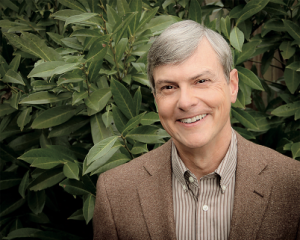Cultural Heritage Partners launched a new series of Meet the Author events with an island mystery that has haunted American history since the late sixteenth century. Andrew Lawler, who wrote the bestseller The Secret Token: Myth, Obsession, and the Search for the Lost Colony of Roanoke, joined us in conversation, introducing our audience to the multiple theories entertained by archaeologists and historians about what happened to the lost colonists who landed on Roanoke Island in 1587.
 Exploring clues found over the course of decades that might contain the key to the mystery, CHP’s Managing Partner, Marion Werkheiser, also interviewed Lawler about what continues to make this mystery so compelling and how it reverberates in contemporary conflicts over identity, race, and culture in America. Throughout the conversation, Lawler asserted Roanoke’s history “is not just something that happened 500 years ago. It’s something that’s driving our history [and] this fear and tension over what it means to be American.”
Exploring clues found over the course of decades that might contain the key to the mystery, CHP’s Managing Partner, Marion Werkheiser, also interviewed Lawler about what continues to make this mystery so compelling and how it reverberates in contemporary conflicts over identity, race, and culture in America. Throughout the conversation, Lawler asserted Roanoke’s history “is not just something that happened 500 years ago. It’s something that’s driving our history [and] this fear and tension over what it means to be American.”
Lawler added, “Behind this myth, what I discovered were Native Americans who actually made the colonies and the United States possible. In fact, it was the Native Americans who provided food and clothing and lodging and the wherewithal to understand how to survive in an alien environment…I think this is a history that we don’t really get. It was with the help and knowledge of the Indigenous Peoples that these European colonists were able to arrive and thrive.”
Yet, Lawler discussed how the early interactions between the English and the Indigenous Peoples at Roanoke also charted the course for conflict between the two groups that would last for centuries. “This is one of the great tragedies of American history that has not really been talked about,” said Lawler, arguing we should not treat what happened between colonists and Native Americans as inevitable. “I just think we have to keep in mind that people made some really bad decisions on Roanoke that set the stage for everything that followed with Native American relations. But those decisions could have been different.”
Lawler went on to speak about Native American sites under threat, including Rassawek, the ancient Monacan capital, which would have been known to the early settlers at Jamestown. As Monacans currently fight to preserve access to their historic land, Lawler noted the Monacans’ “role in the development of Virginia and, of course, the United States.” He suggested, “As important as the Lost Colony is, I think it’s good not to lose sight of the fact that there are plenty of other colonies and settlements that deserve our protection.”
Finally, the conversation addressed the ways that the myth of the Lost Colony sheds light on our current reckoning with the broader history of race in America, including the treatment of African-Americans. Virginia Dare, the granddaughter of John White, who led the colonists’ voyage to Roanoke, continues to resurface as a symbol of racial hierarchy, hundreds of years after her birth in the New World.
Lawler said, “What I discovered was Virginia Dare was a kind of barometer of American attitudes about race,” beginning in the 19th century. “She was used quite brazenly by people who called themselves white supremacists,” to illustrate the way in which white people felt overwhelmed by waves of immigrants coming to America in the late 19th and early 20th centuries, and she endured as a popular figure through World War II and the entire Jim Crow era. Today, she appears online as a mascot for white nationalist groups calling for an end to immigration and the preservation of white culture in America.
The conversation also found its way to Confederate monuments, which were erected in the same era as the Virginia Dare myth began to circulate. Lawler reflected on what he has learned while covering the movement to remove these monuments as a journalist, saying, “The way we think about history has a profound effect on the way we treat others, the way we see others, the way we understand other people’s points of view. He added that cultural heritage “is now on the front pages, and it’s about time. I’m really excited about the chance to get this conversation out of academia, get this conversation away from just, say, preservationists or people who run historical societies in small towns. This is now a national issue we have to confront.”
You can view a video of the entire discussion with Andrew Lawler below.
Do you have an author to suggest for a future event? Please email Katherine Sorrell at katherine@culturalheritagepartners.com.